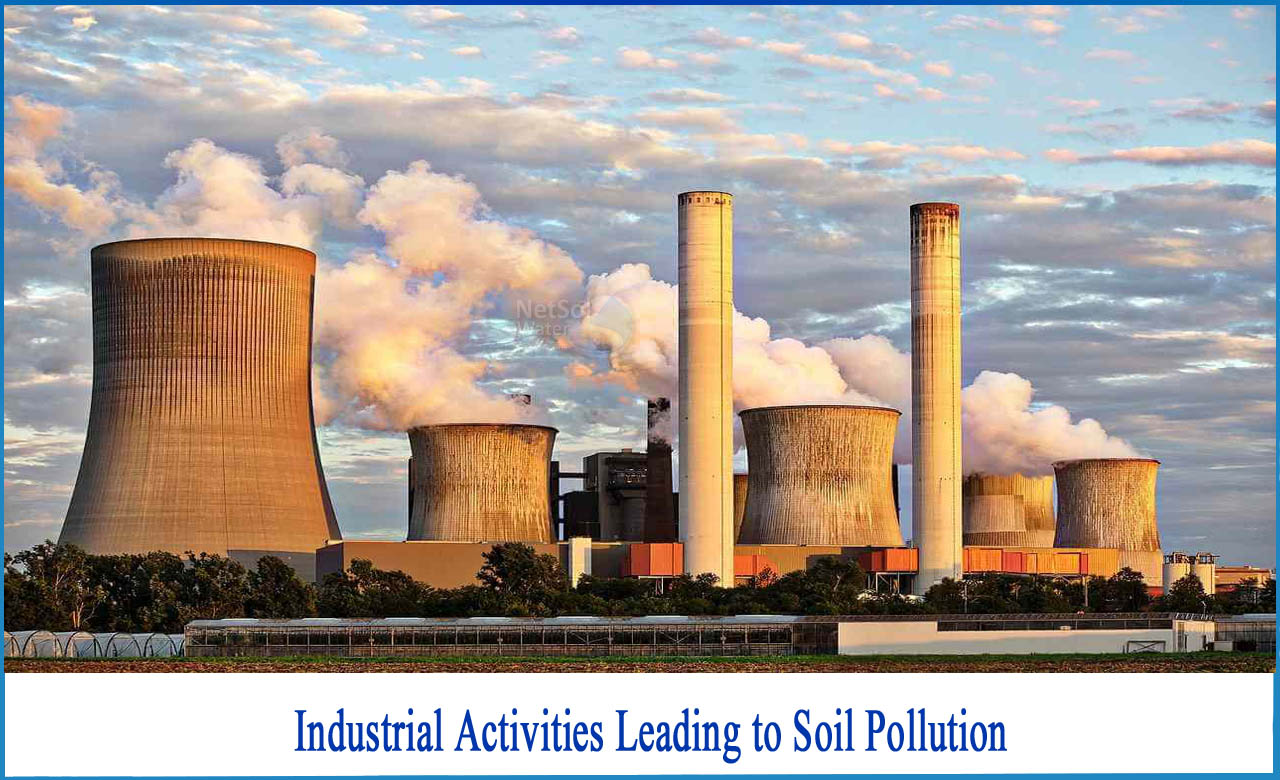Soil pollution is defined as the presence of hazardous compounds (pollutants or contaminants) in soil at concentrations high enough to endanger human health and/or the environment. Even if the amounts of contaminants found naturally in soil are not high enough to constitute a risk, soil pollution is defined as when the levels of contaminants in soil surpass the levels that should be present naturally.
All soils, whether polluted or not, contain a range of naturally occurring substances. Metals, inorganic ions and salts (e.g. phosphates, carbonates, sulphates, nitrates), and many organic molecules are examples of pollutants (such as lipids, proteins, DNA, fatty acids, hydrocarbons, PAHs, alcohols, etc.). These chemicals are mostly generated by soil microbial activity and organism degradation (e.g., plants and animals). Various substances enter the soil from the environment, for example, with precipitation water, as well as from surface water bodies and shallow groundwater flowing through the soil, as well as via wind activity or other types of soil disturbances.
By accumulating and occasionally concentrating toxins that wind up in soil from numerous sources, soil acts as a natural sink for contaminants. Tiny amounts of contaminants accumulate in the soil and, depending on environmental factors (including soil types) and the degradability of the released contaminant, can reach high levels in the soil and pollute it.
This occurs because the plants remove the majority of the soil contaminants present in the soil along with water every time they feed. As a result, it's usually a good idea to examine the soil before planting anything edible. This is especially critical if your garden is close to an industrial or mining area, or if it is less than a mile away from a major airport, harbor, landfill, or foundry.Pollutants and toxins make up soil pollution.
How do Industrial Activities Cause Soil Pollution?
Waste from the industry:
Waste generated by manufacturing or industrial activities is referred to as industrial waste. Cafeteria waste, dirt and gravel, masonry and concrete, scrap metals, trash, oil, solvents, chemicals, weed grass and trees, timber and scrap lumber, and similar wastes are all examples of industrial waste. Hazardous and non-hazardous waste are two types of industrial solid waste, which might be solid, liquid, or gas in containers. Manufacturing and other industrial operations can produce hazardous waste. Hazardous waste includes certain commercial items such as cleaning fluids, paints, and insecticides that are disposed by businesses or individuals.
Which type of Waste Comes from Industrial Activity?
Industrial Waste comes in a variety of forms:
1-CHEMICAL WASTE
Factories, processing facilities, warehouses, and plants are the most common sources of chemical waste. Chemical waste must be disposed of according to strict criteria. Various government and environmental agencies, such as the Environmental Protection Agency and the Occupational Safety and Health Administration, have established and controlled these recommendations. Non-compliance is usually accompanied with penalties. To maintain compliance with health, safety, and regulatory standards, chemical waste must be segregated on-site, and trash disposal may require the assistance of an expert.
2-SOLID WASTE
Solid waste in industrial services encompasses a wide range of items such as paper, cardboard, plastics, packaging materials, wood, and scrap metal. A recycling center may be able to reuse and recycle some of these materials. Trash disposal will not be as cost-effective or ecologically friendly as it may be if you don't have a comprehensive waste management plan that includes recycling. The bulk of industrial solid waste may be processed in a recycling center, lowering your waste disposal costs significantly.
3-HAZARDOUS AND TOXIC WASTE
Toxic and hazardous trash is made up of materials that, if not managed properly, can create major health and safety issues. Dangerous byproducts materials generated by industries, farms, building sites, laboratories, garages, hospitals, and some production and manufacturing plants are examples of this type of trash. Toxic and hazardous waste disposal is regulated by the EPA and state departments. This type of garbage can only be disposed of in specially approved facilities across the country.
All of these waste types have an impact on the soil in some way. Heavy metals in soil disrupt the food chain and have a negative impact on human health. As a result, proper management and treatment of industrial solid waste is essential for our health and wealth.
Netsol Water is Greater Noida-based leading water & wastewater treatment plant manufacturer. We are industry's most demanding company based on client review and work quality. We are known as best commercial RO plant manufacturer, industrial RO plant manufacturer, and effluent treatment plant manufacturers. Apart from this 24x7 customer support is our USP. Call on +91-9650608473, or write us at enquiry@netsolwater.com for any support, inquiry or product-purchase related query.



